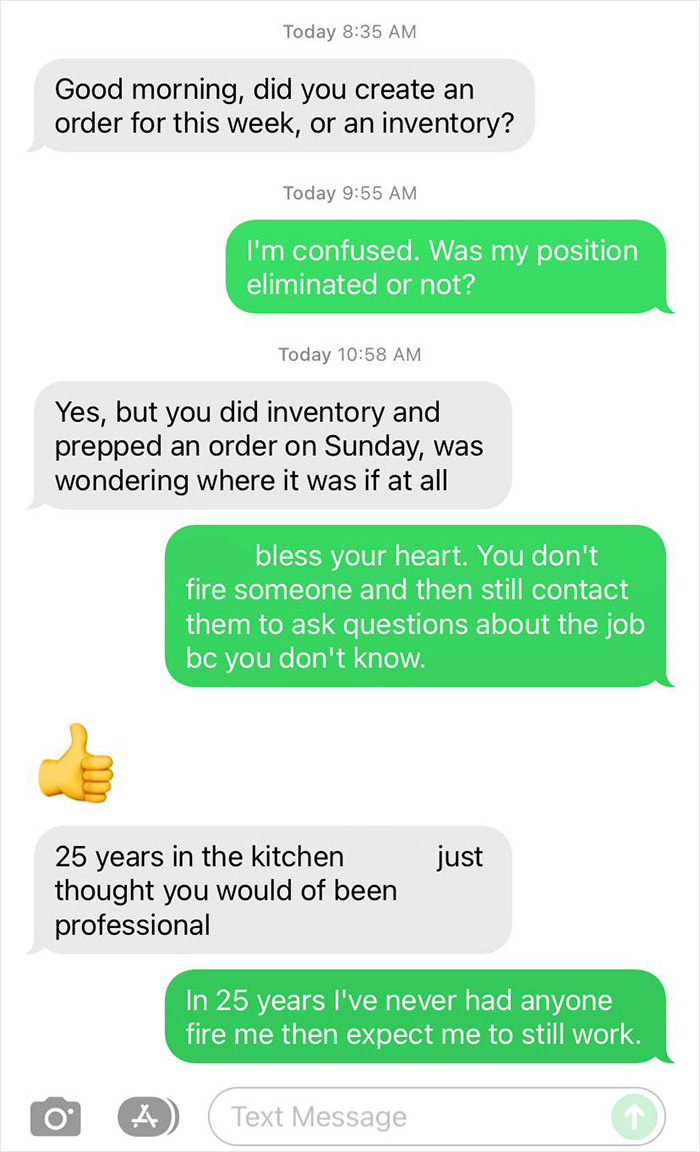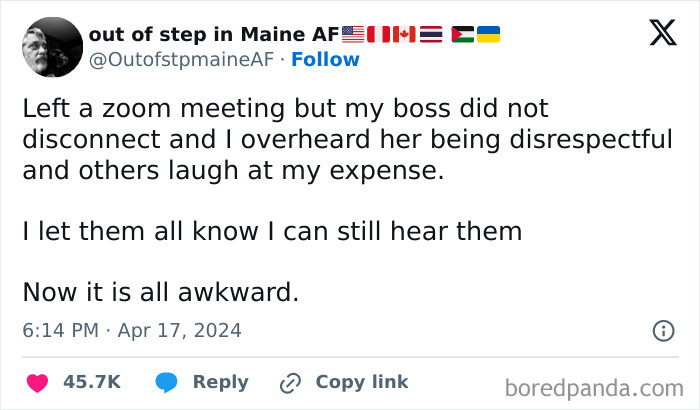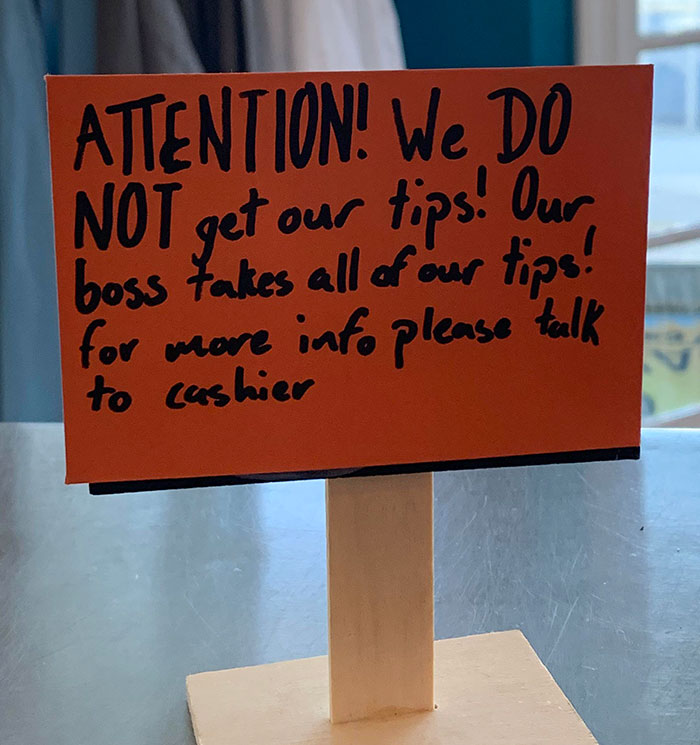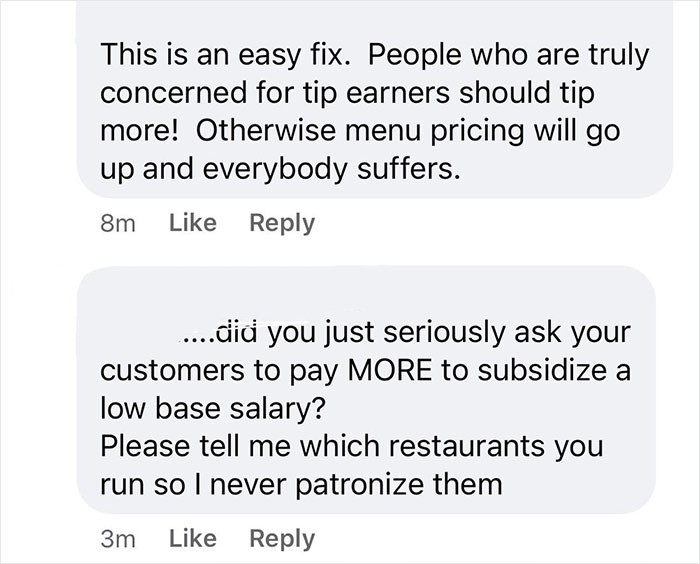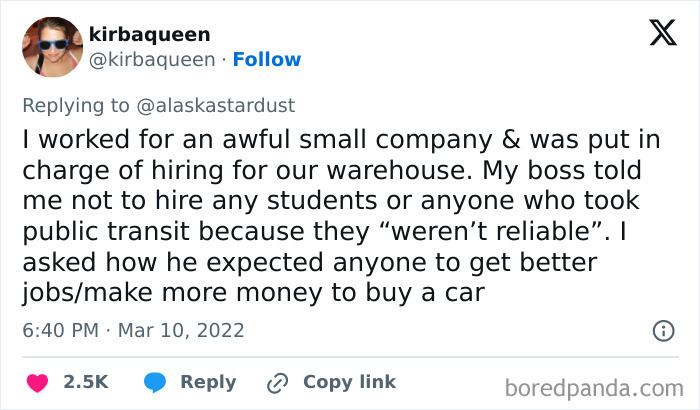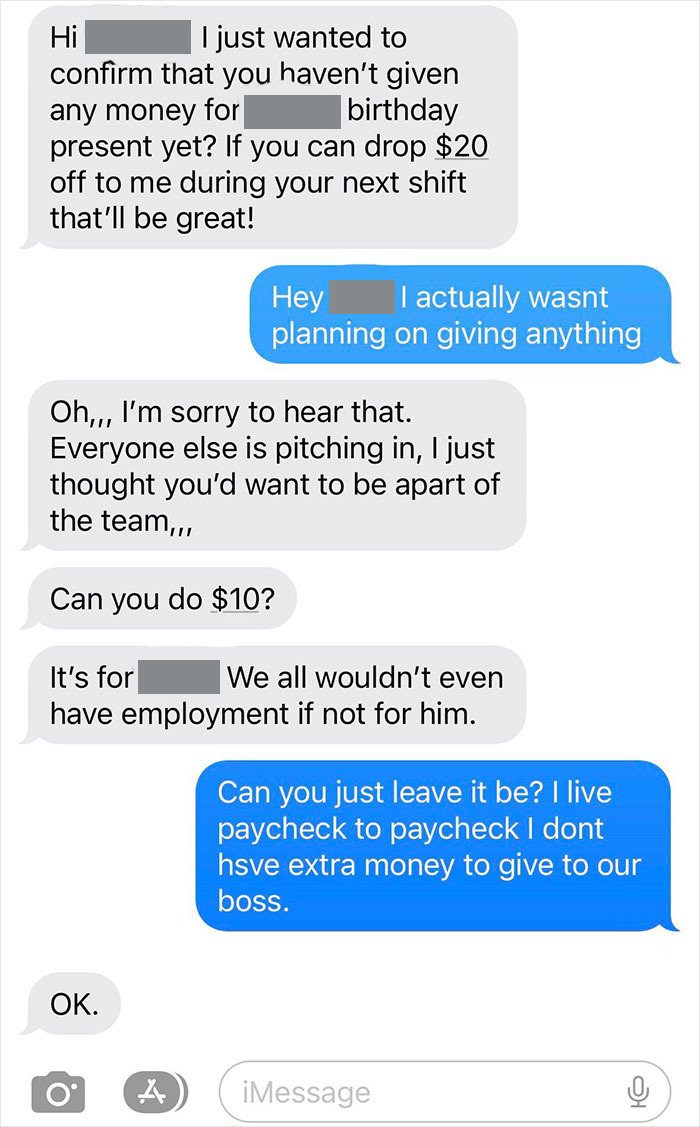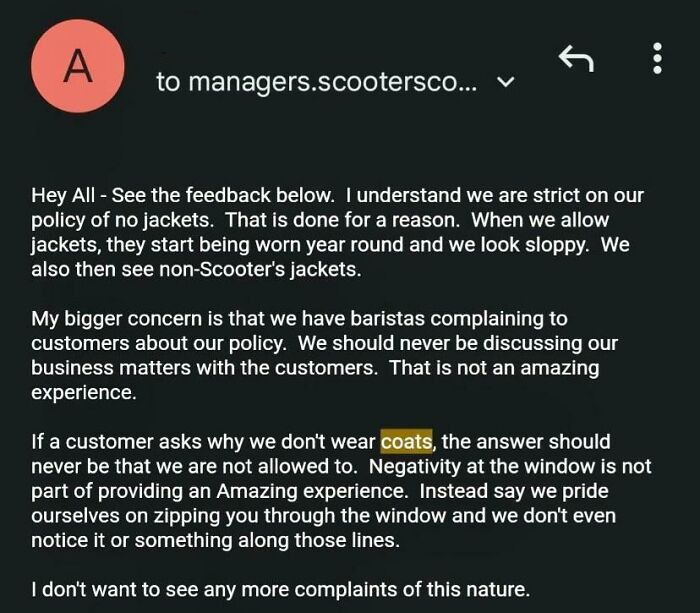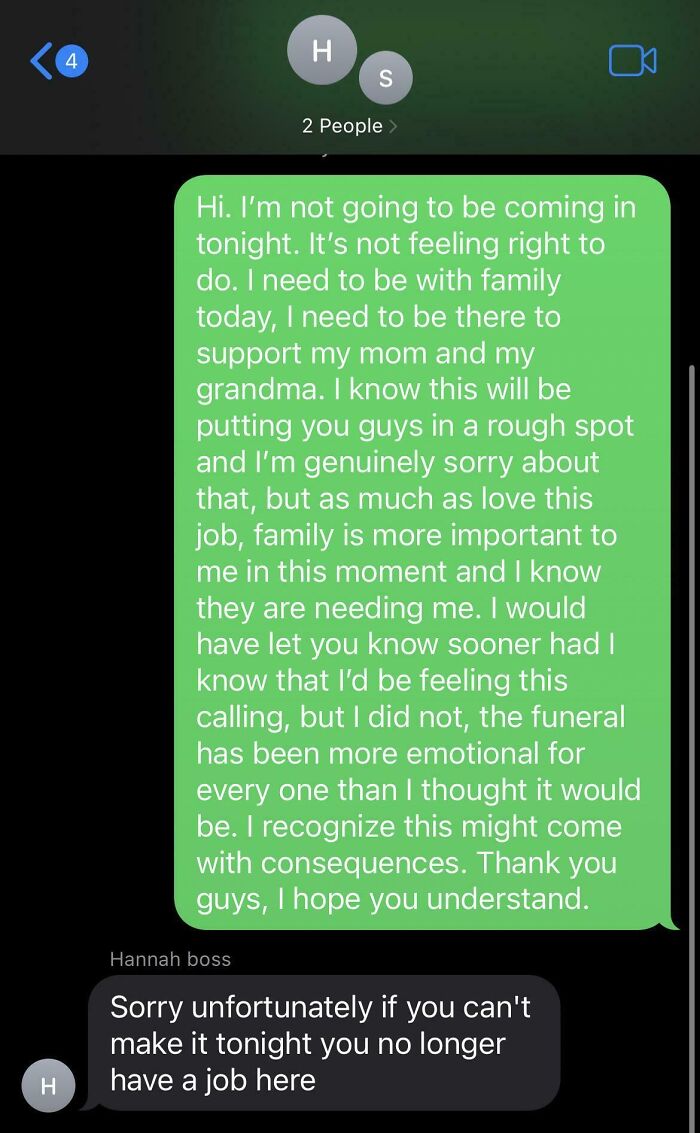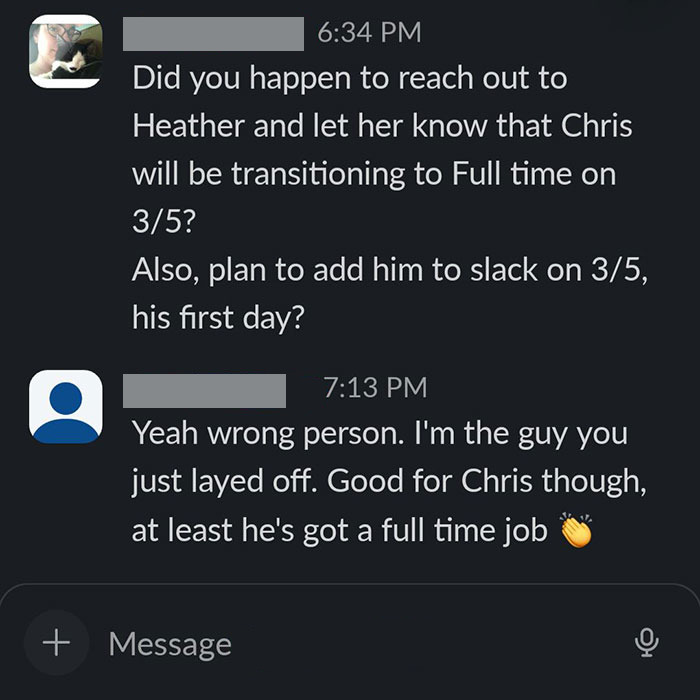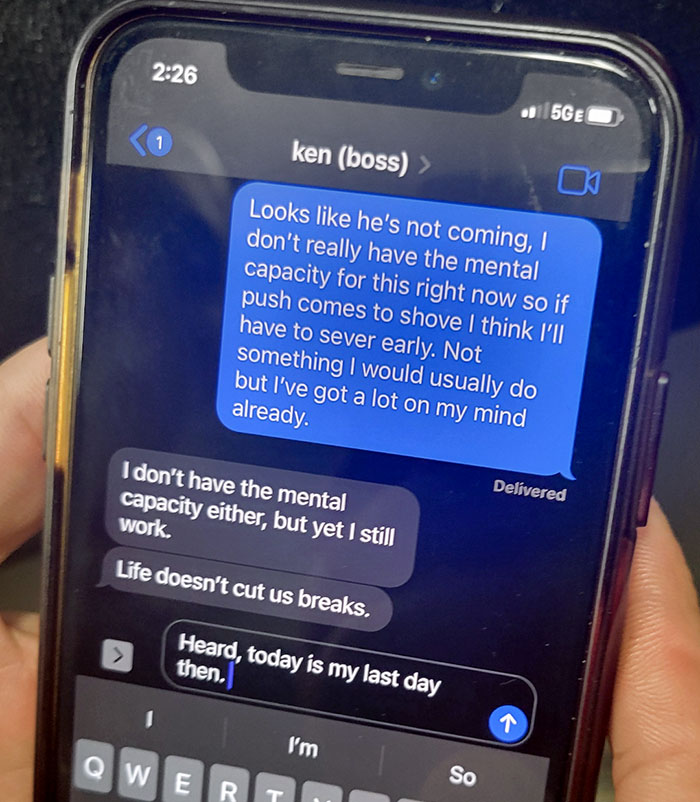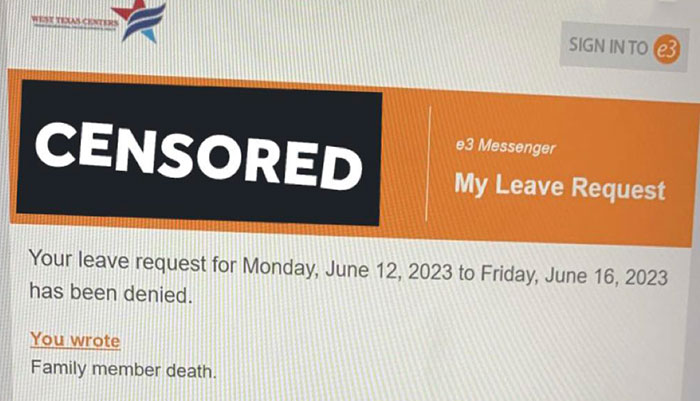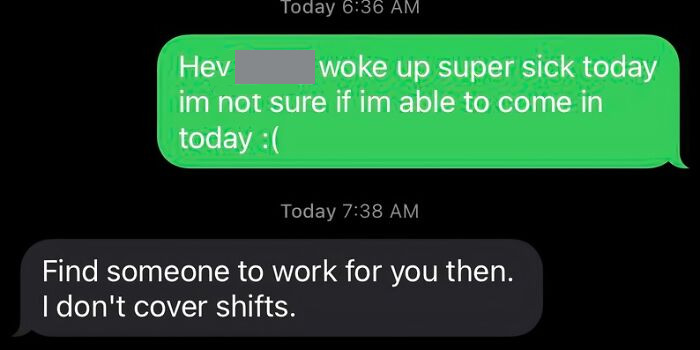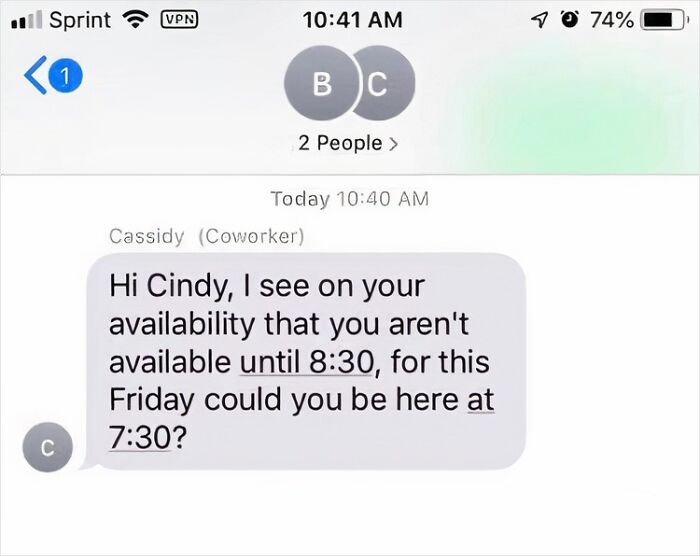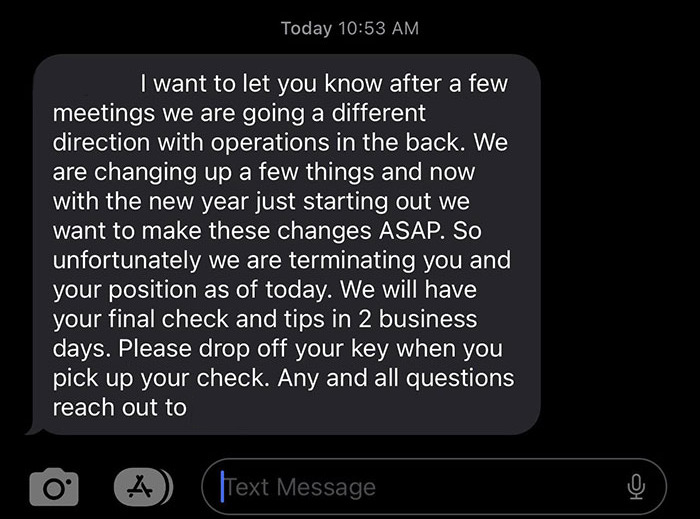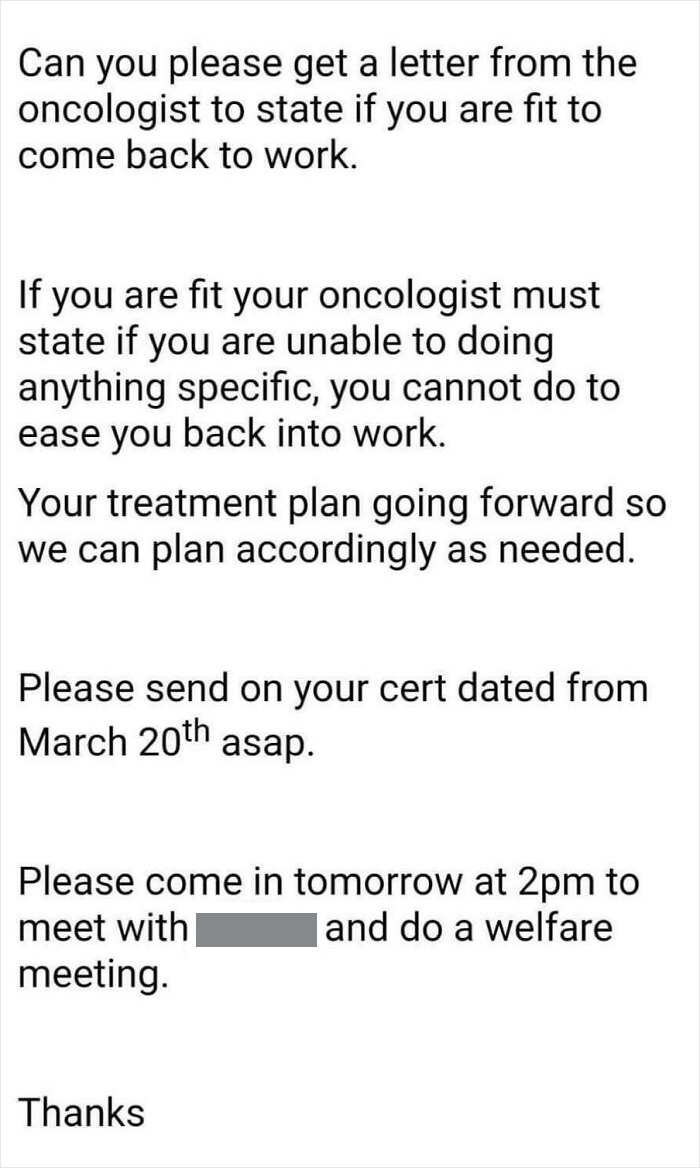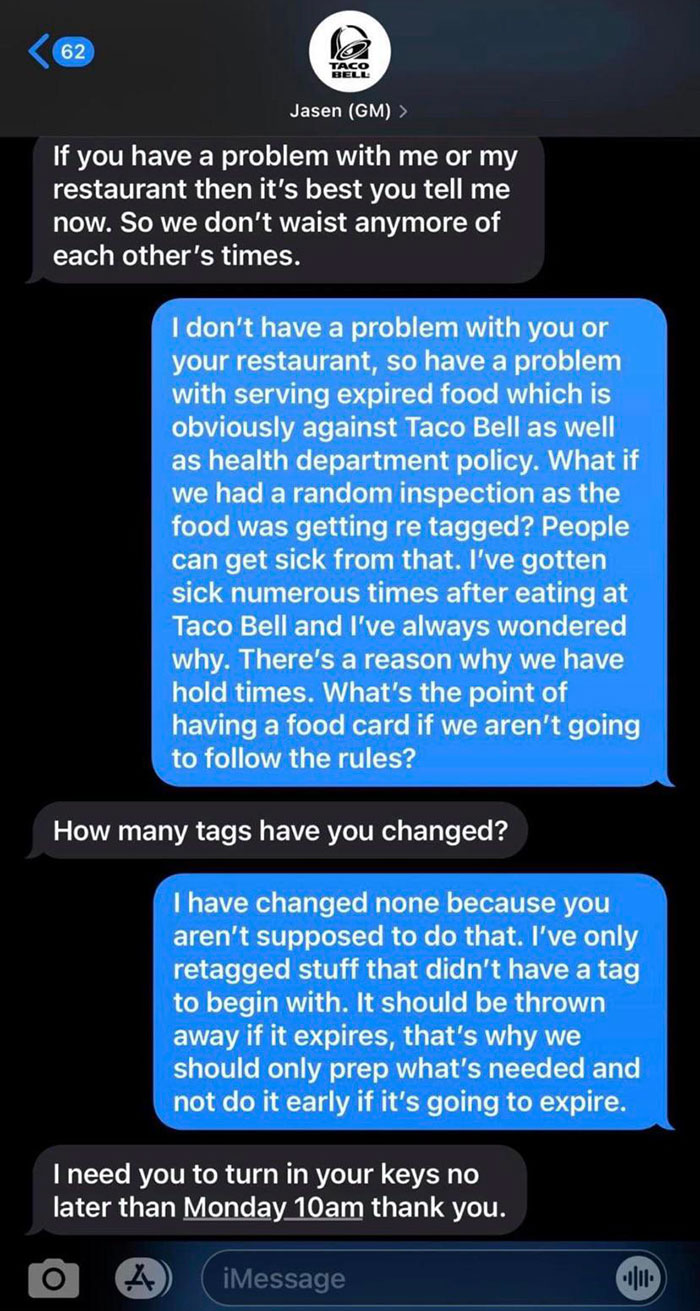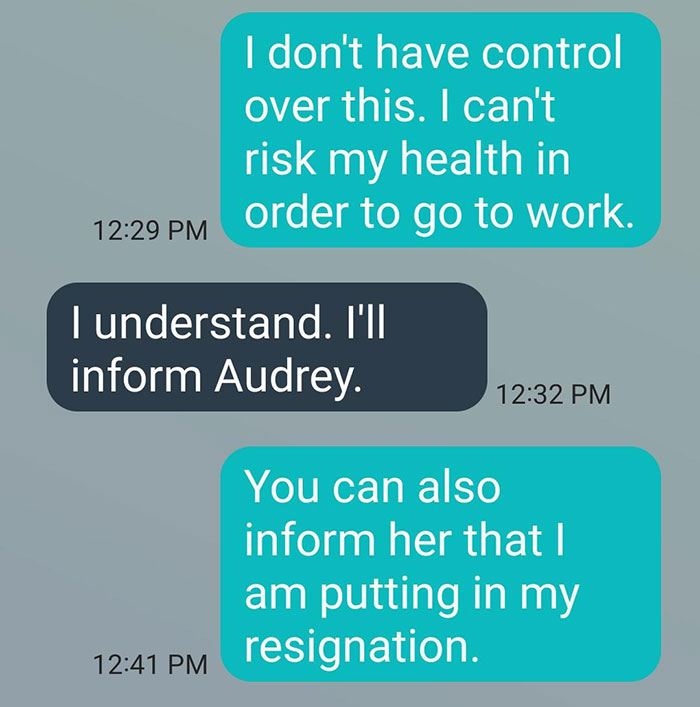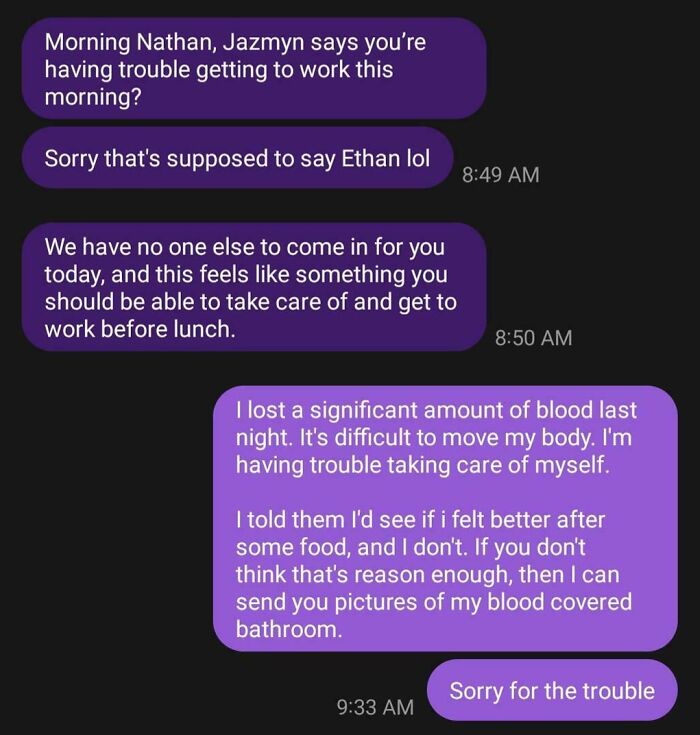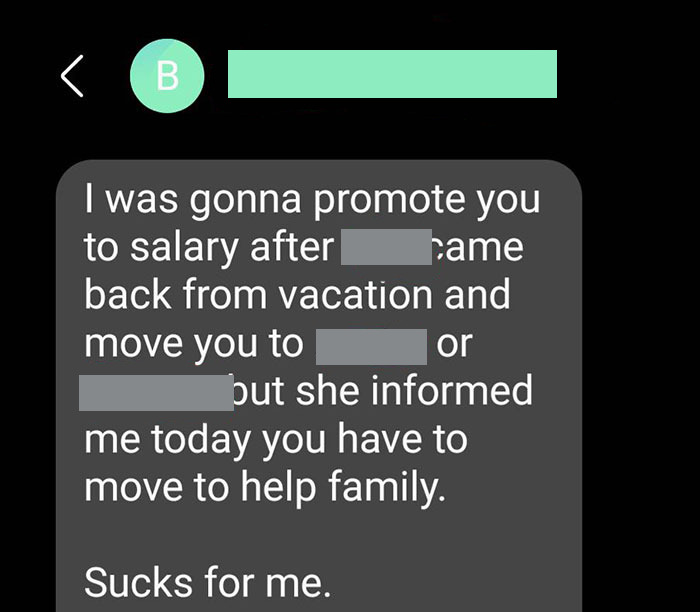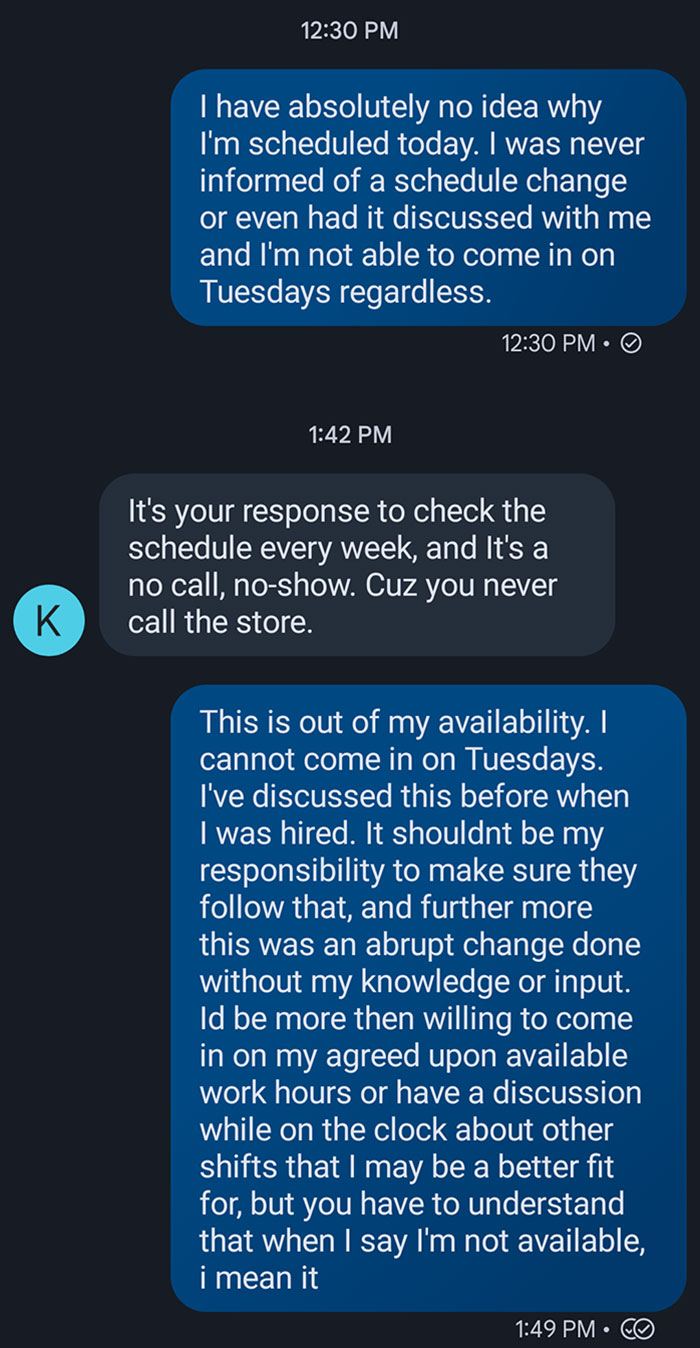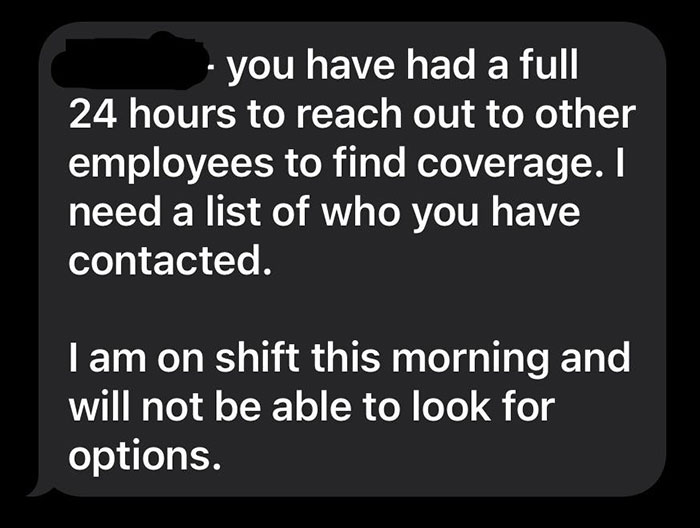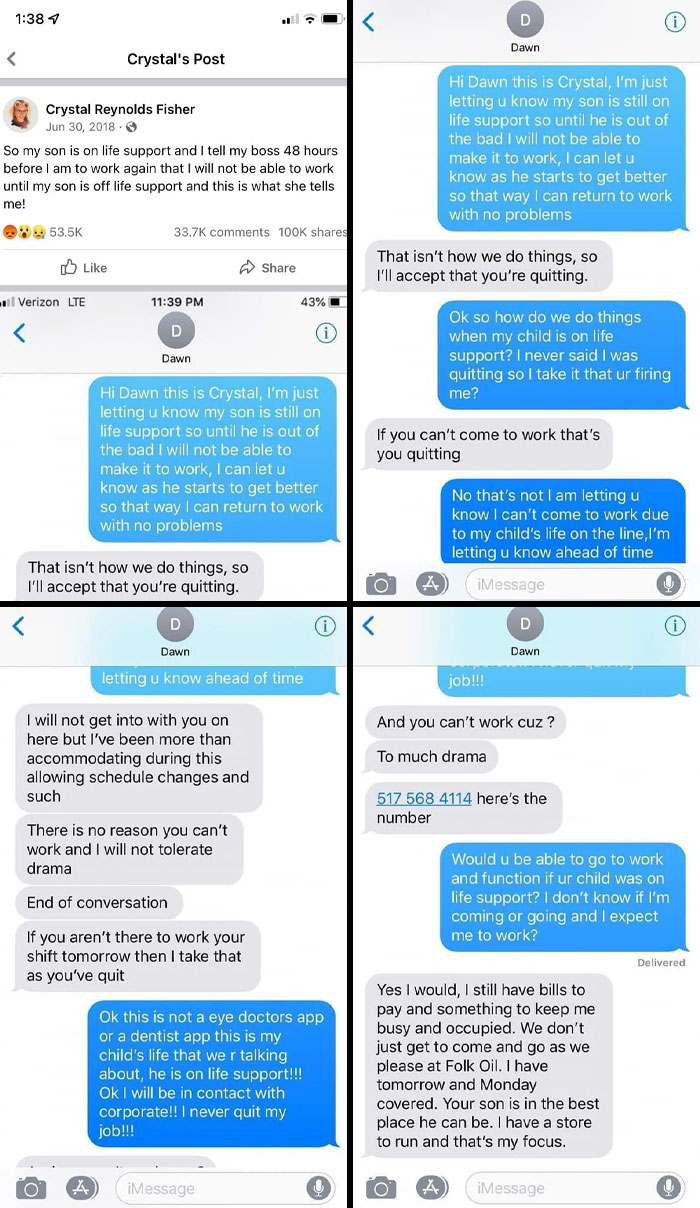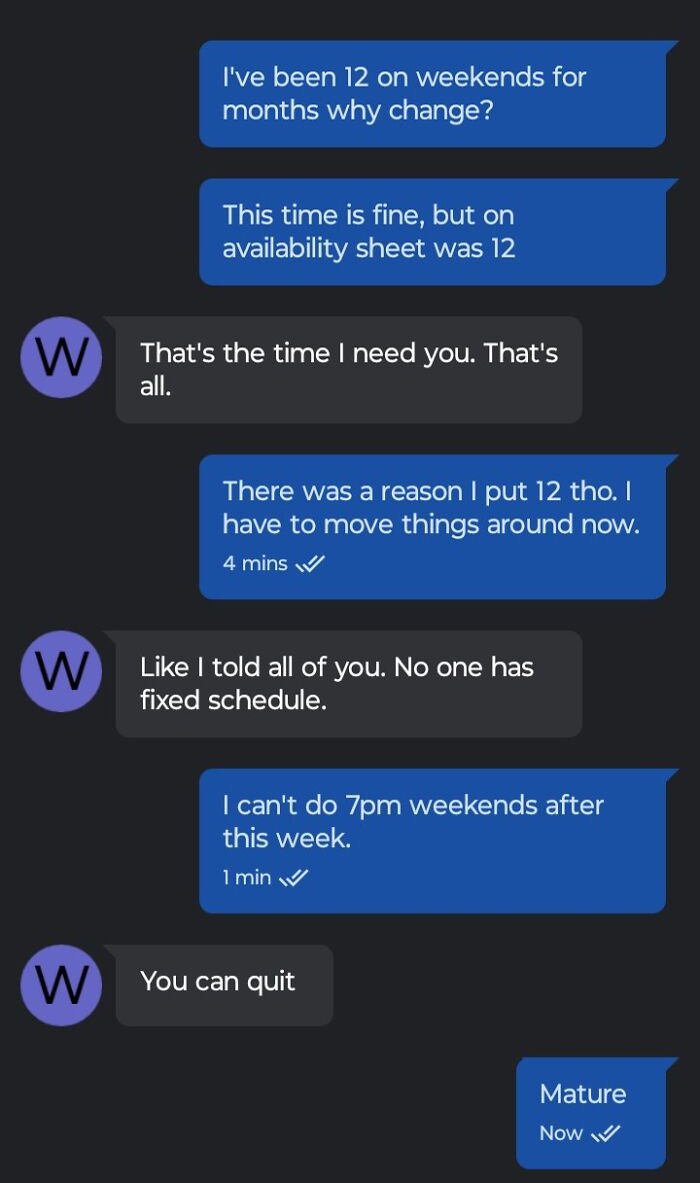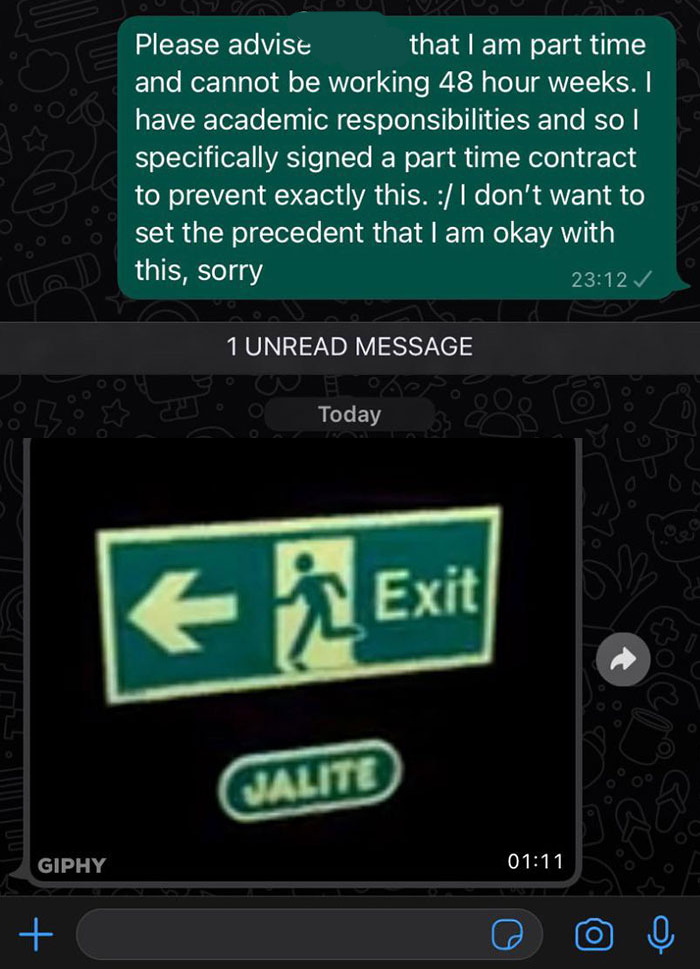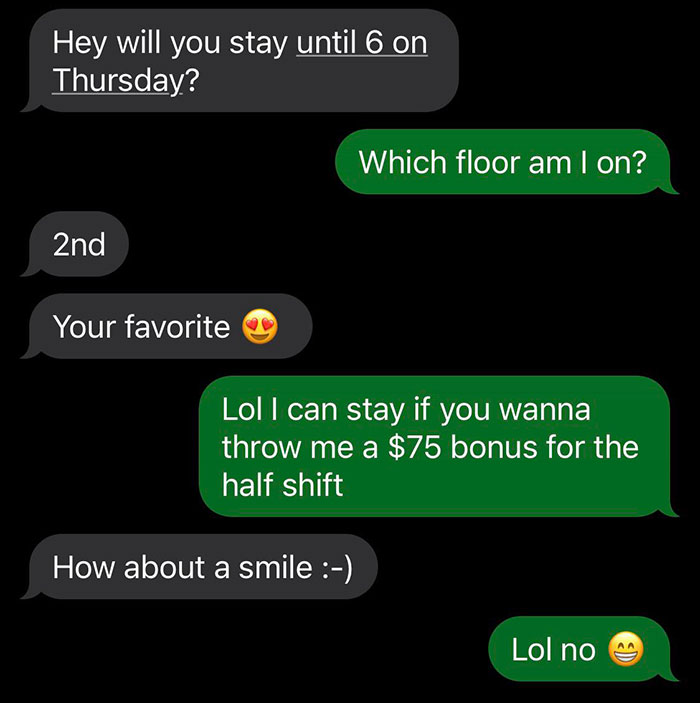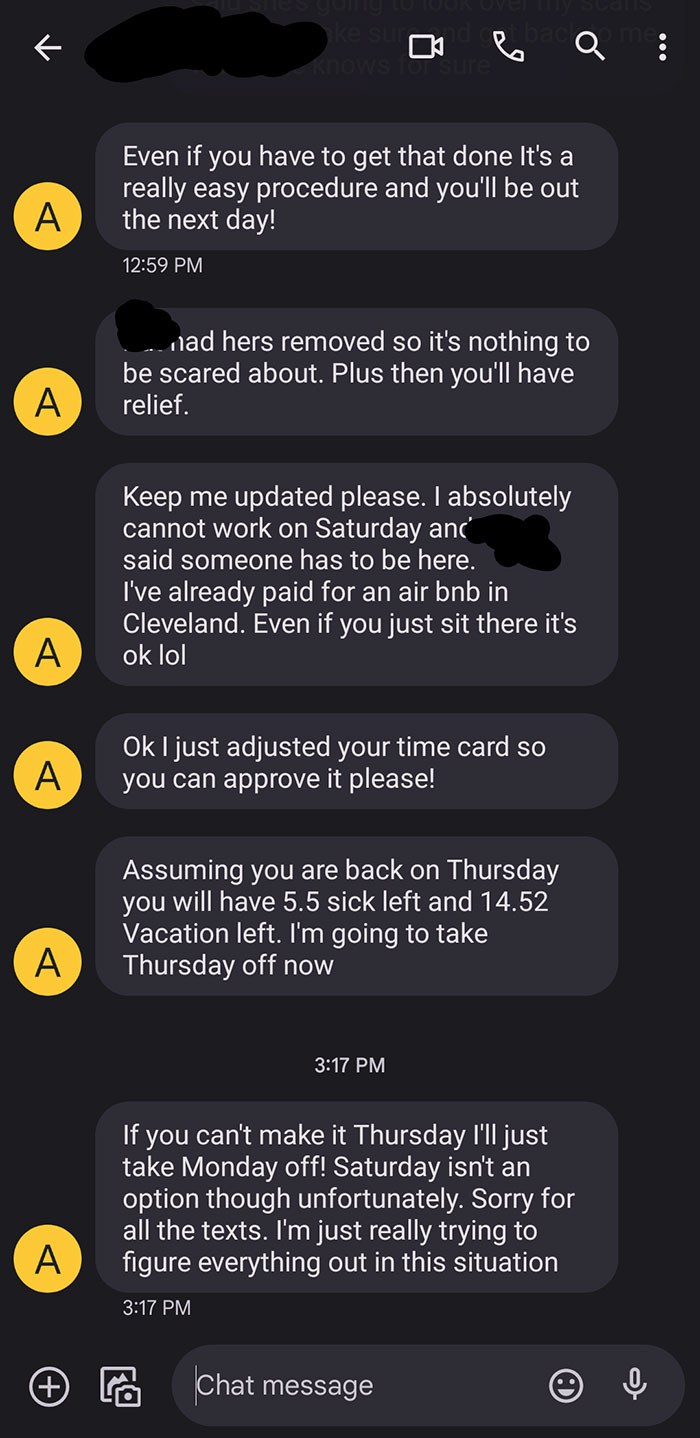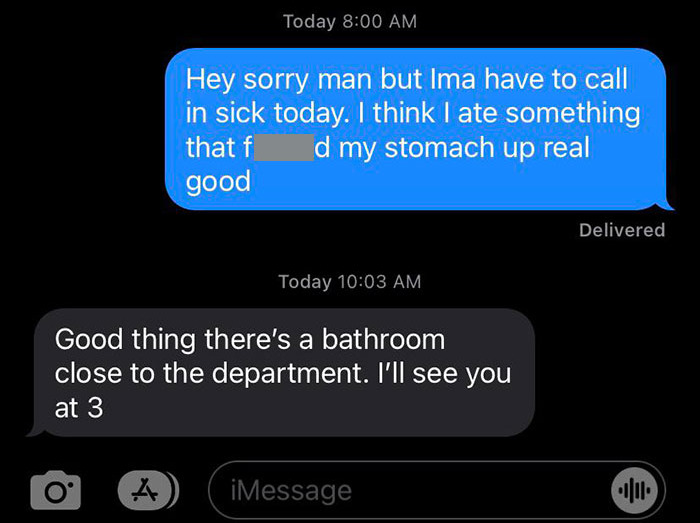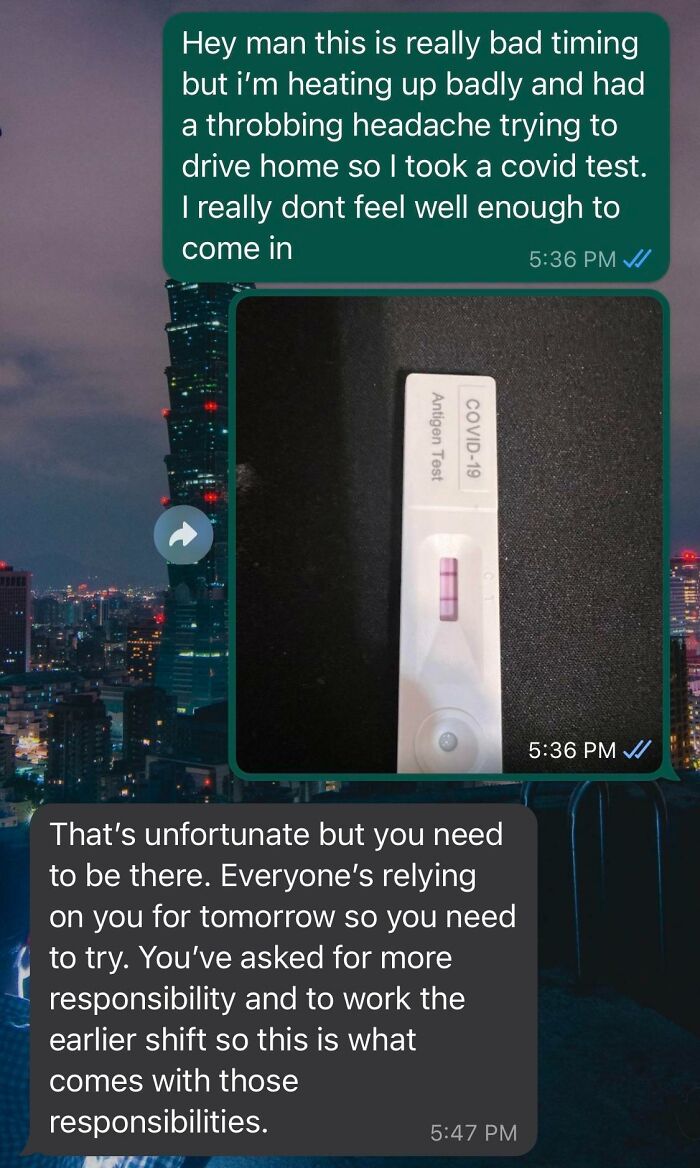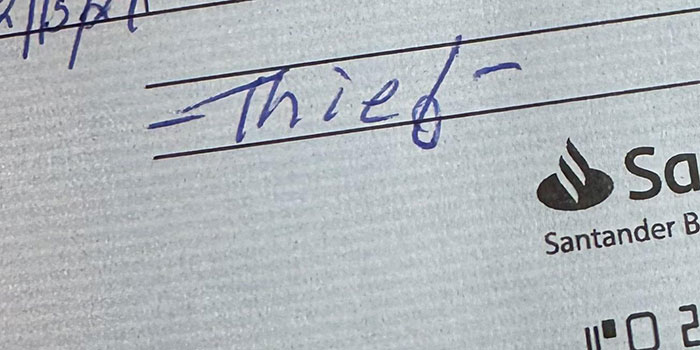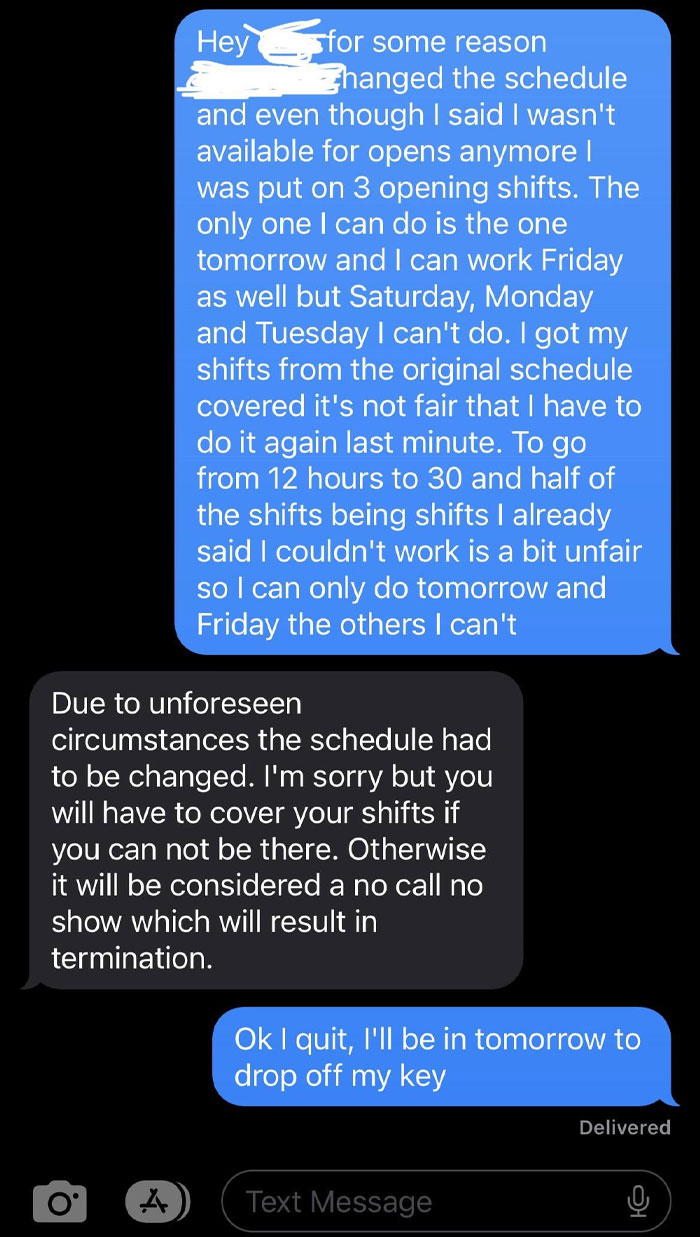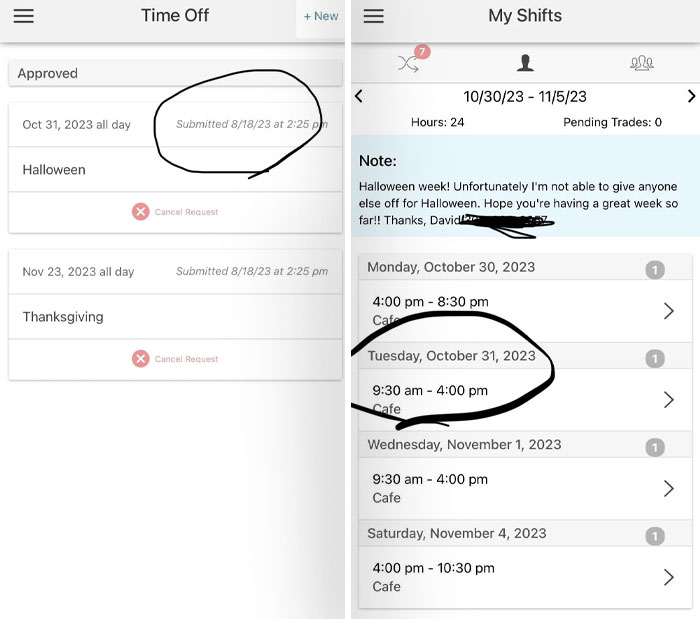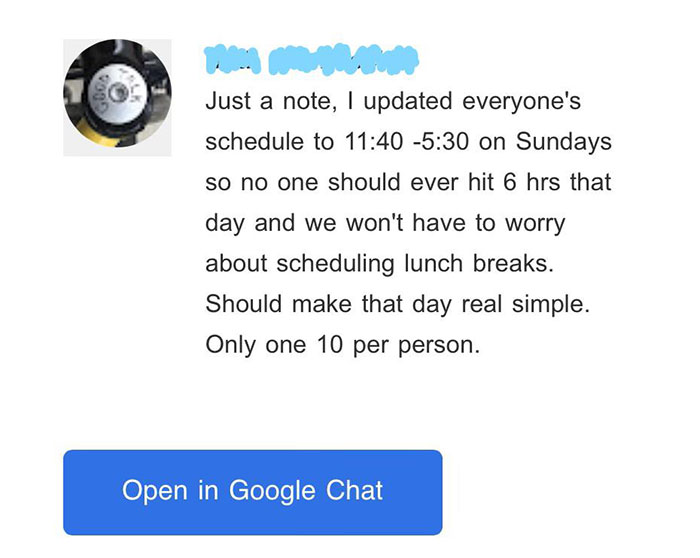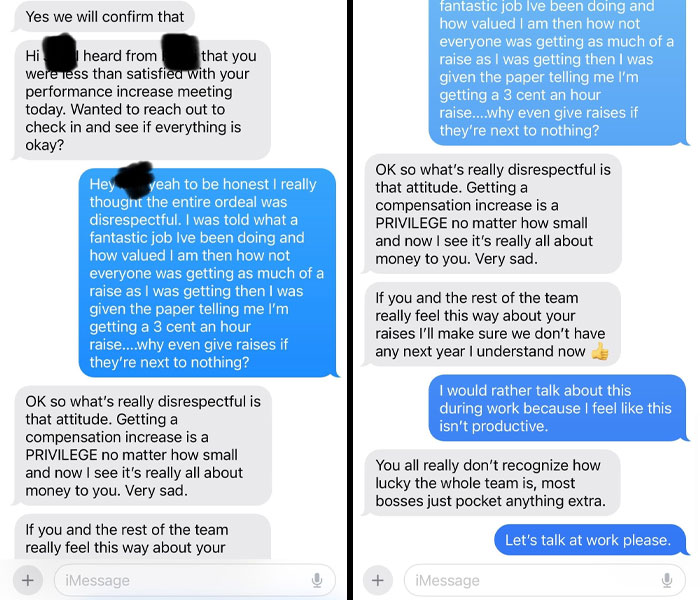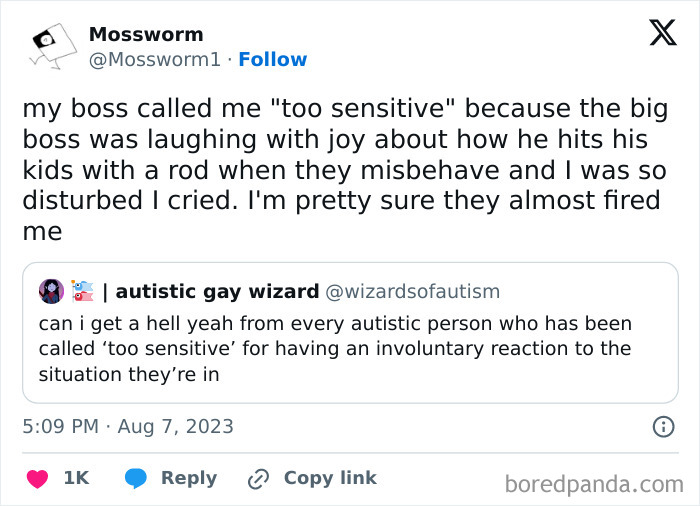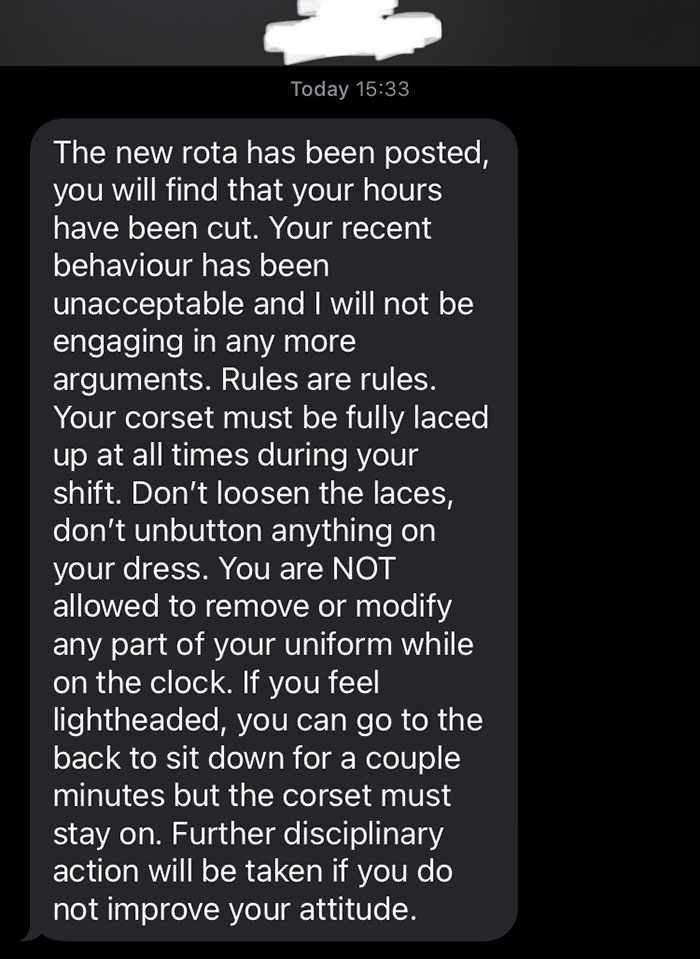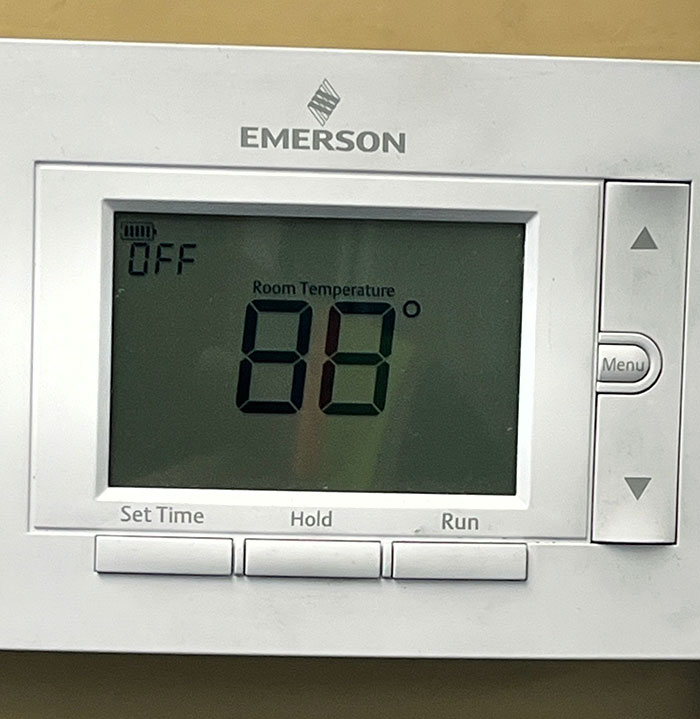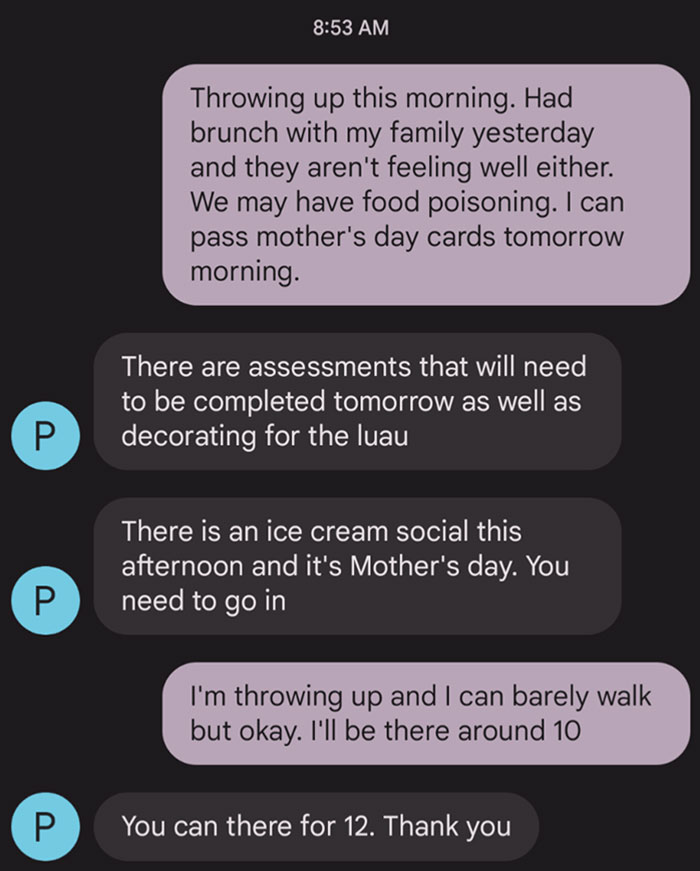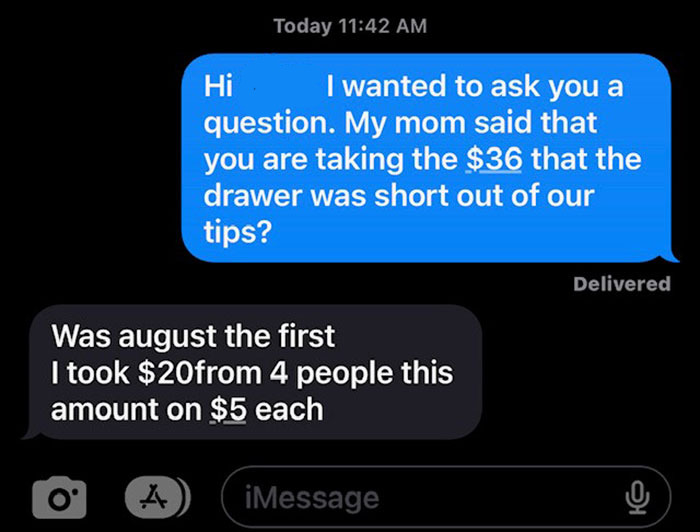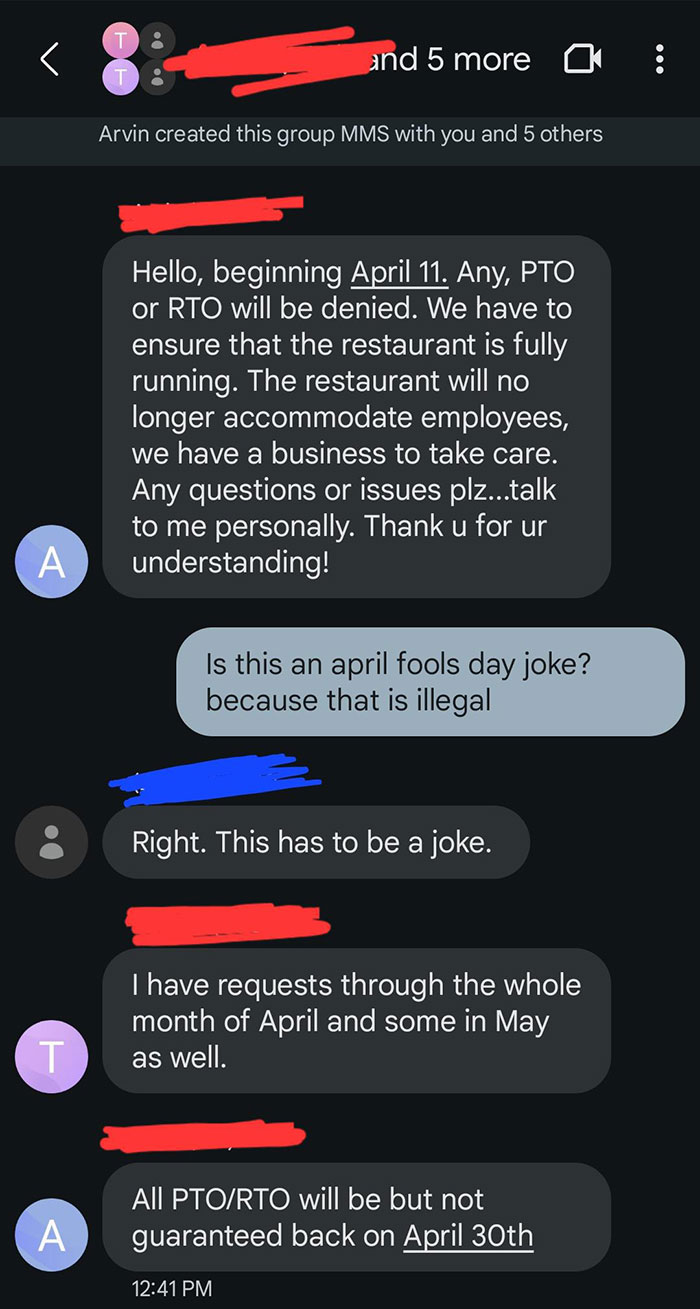Today, we’re focusing on the people who, unfortunately, haven’t won in said lottery. Having to deal with higher-ups with all sorts of aggravating traits, these people have screenshots to show just how difficult working with them can be. If you’re curious to see what it entails, scroll down to find them on the list below and see how your boss looks compared to this “hall of fame”. Below you will also find Bored Panda’s interview with a Professor of Leadership and Organizational Psychology at Claremont McKenna College in Claremont, California, Dr. Ronald Riggio, who was kind enough to share his insight on how strong of an influence a bad—or good—boss can be on their employees. “This serves three purposes,” he suggested. “Firstly, it increases the employee’s commitment to shared goals; for example, performing at a high level. Secondly, it allows the leader to help the follower learn and develop and build their capacity to grow and develop their own leadership capacity. Lastly, it increases employee satisfaction and reduces stress (the greatest source of employee stress comes from difficult relationships at work, particularly poor relationships with supervisors or bosses).” “On the employee side, it can allow the employee some freedom and autonomy to get the job done in the right way. The very best bosses try to understand and empathize with their employees. This allows them to better understand what motivates each employee, what their strengths and weaknesses are, so that the boss can better leverage those. The happiest and most productive employees tend to have bosses who support them, make them feel secure and appreciated, but a boss who can also challenge them to have them be motivated and perform at their best.” Unfortunately, quite a significant number of people reportedly suffer such a form of torture at work. According to Pew Research Center, 55% of employed individuals say their boss is excellent, or very good, at least; however, one-in-five would strongly disagree, as being only fair or poor, their bosses line up on the other end of the spectrum. “This was the first time leadership was so clearly connected to physical health. I think, in general, bosses have a great impact on us. They are people who have power over our lives by defining the boundaries of our work, where we spend a lot of our time,” said the researcher behind the study, psychologist Anna Nyberg. “As mentioned, a poor relationship with one’s superior can lead to employee stress. Stressed employees may then call in sick—either because they are suffering from stress-related illnesses, or they simply want to avoid the bad situation at work—which leads to increased absenteeism. In extremes, a bad boss-worker relationship can cause an employee to leave altogether, looking for a better situation.” Roughly 75% of workers in the US say that their boss is the worst and most stress-inducing part of their jobs, the World Economic Forum reports. For some employees, the situation is so dire, as much as 60% of them would rather choose a new boss than a pay rise. Unfortunately, nearly one-in-six employed adults continue working for the person they likely find aggravating at best, which ought to have an effect on their performance, as well as their personal well-being. A meta-analysis of 57 different studies found that the negative impact of dealing with a bad boss can linger for up to ten years. To make matters worse, such an impact outweighs the positive influence of a good boss, Inc reports. If you’re looking for more motivation to leave an aggravating boss, feel free to browse our older editions on horrible bosses here and here next. Follow Bored Panda on Google News! Follow us on Flipboard.com/@boredpanda! Please use high-res photos without watermarks Ooops! Your image is too large, maximum file size is 8 MB.
